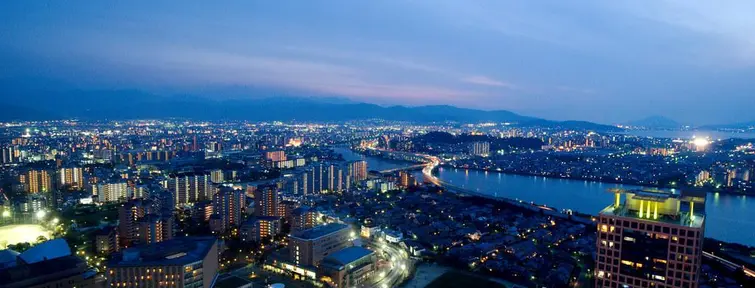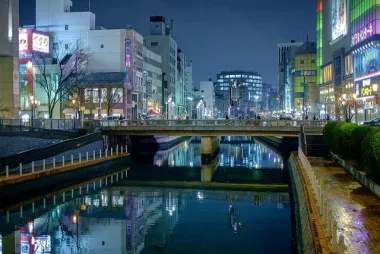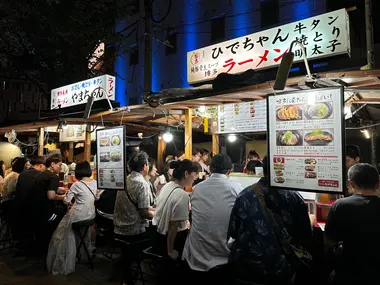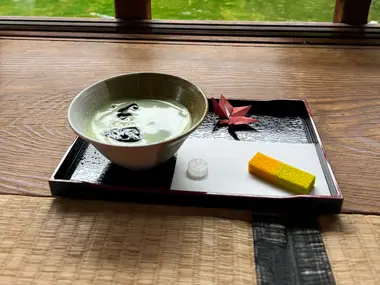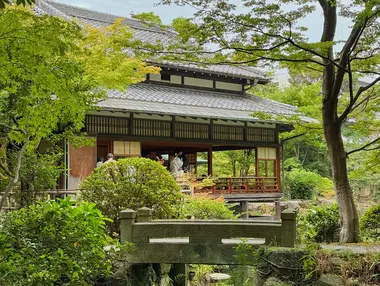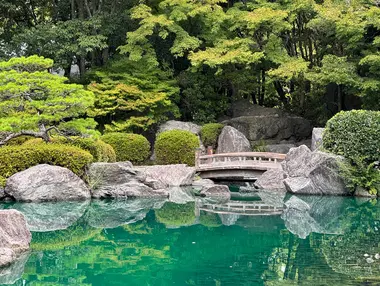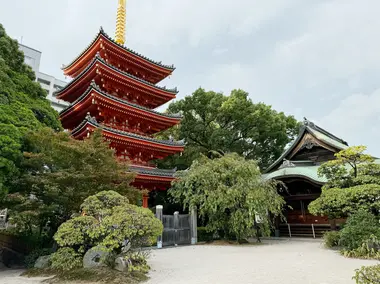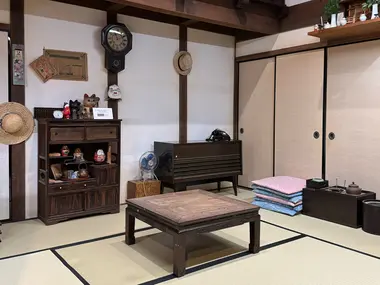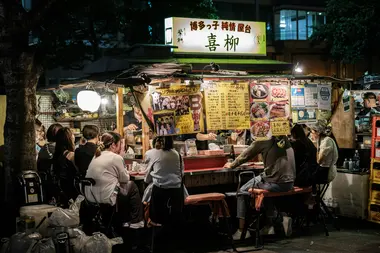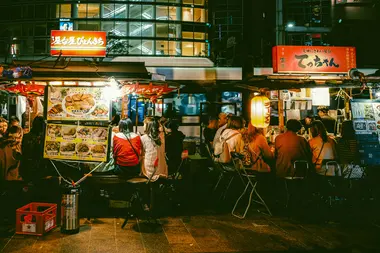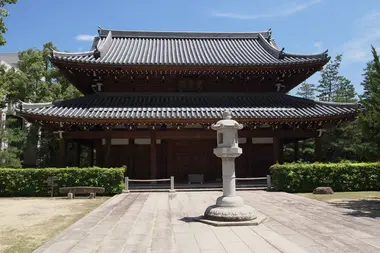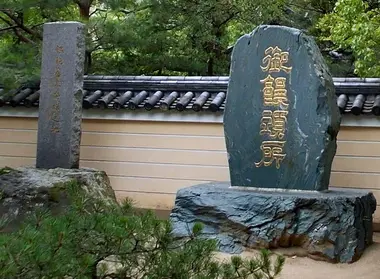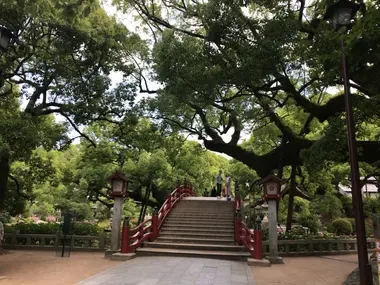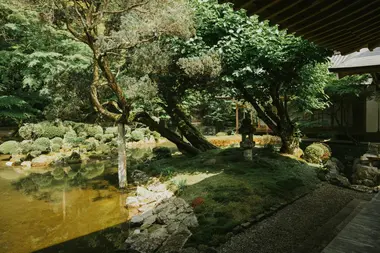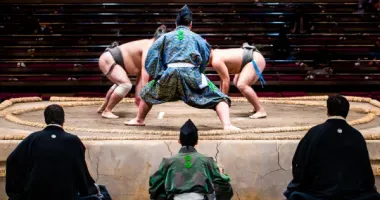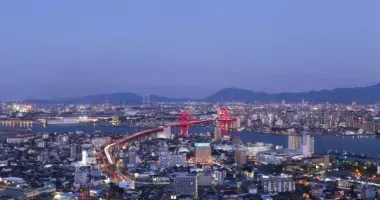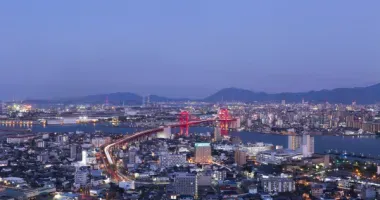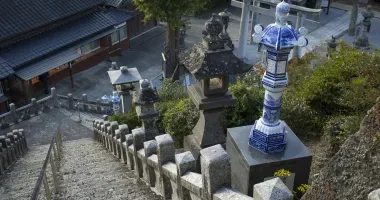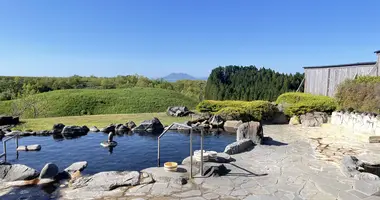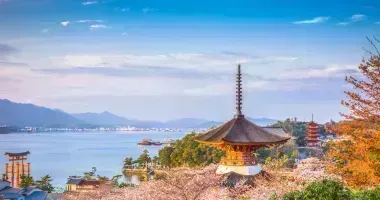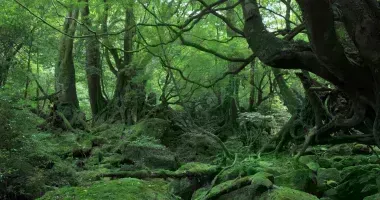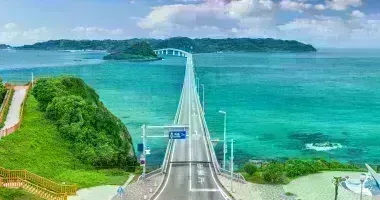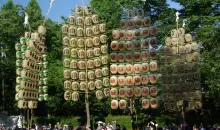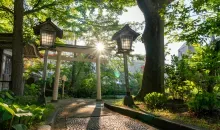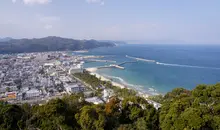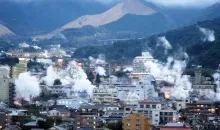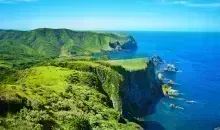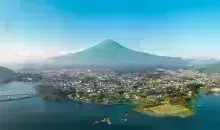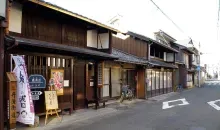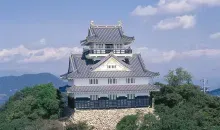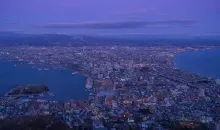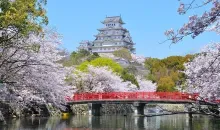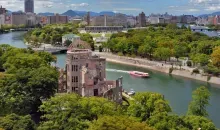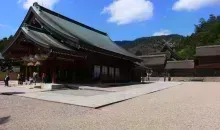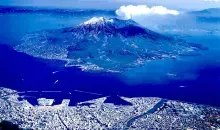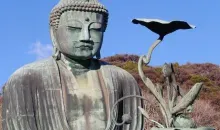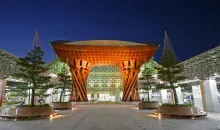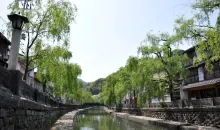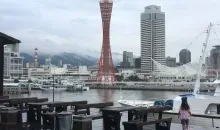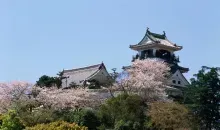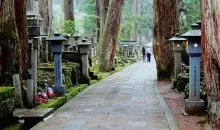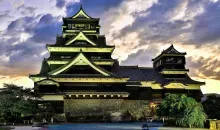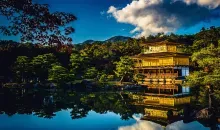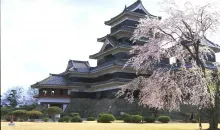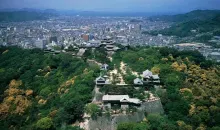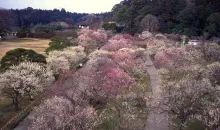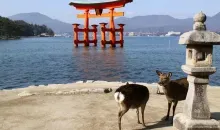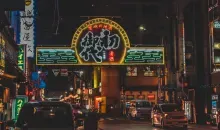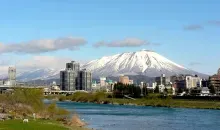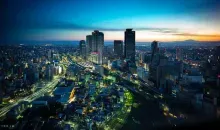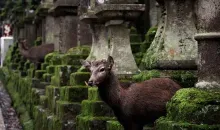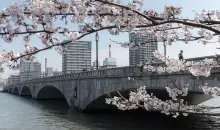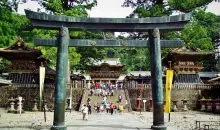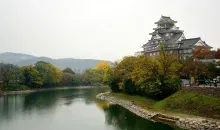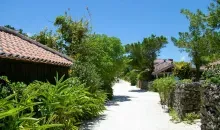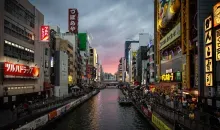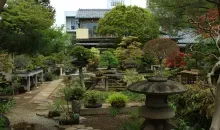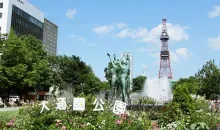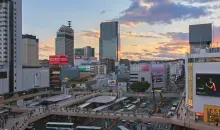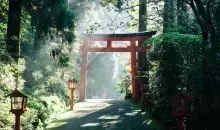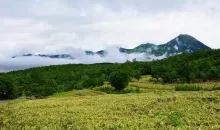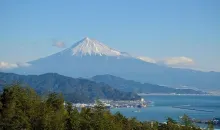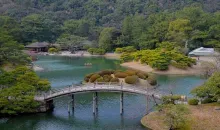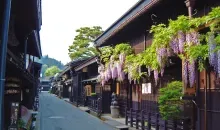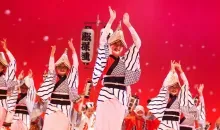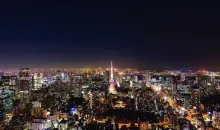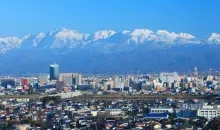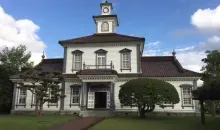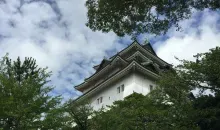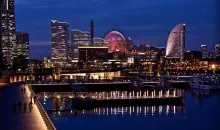Fukuoka 福岡
Local Time 12:02
Symbol : sunny_cloudy
Temp : 23.2°C
Date : Today
Symbol : sunny_cloudy
Temp : 19.8°C
Date : Tomorrow
Symbol : sunny_cloudy
Temp : 20.9°C
Date : Sunday
Symbol : cloudy
Temp : 16°C
Date : Monday
Local Time 12:02
Symbol : sunny_cloudy
Temp : 23.2°C
Date : Today
Symbol : sunny_cloudy
Temp : 19.8°C
Date : Tomorrow
Symbol : sunny_cloudy
Temp : 20.9°C
Date : Sunday
Symbol : cloudy
Temp : 16°C
Date : Monday
Fukuoka, the capital of the south
Vibrant and sunny, pleasant and gourmet, Fukuoka is the economic hub and cultural heart of Kyushu Island. The island's largest city has a strong identity, forged by centuries of trade with its Asian neighbors.
The history of Fukuoka
Fukuoka owes its destiny to its geographical location: nestled on the northern coast of the island of Kyushu, facing South Korea and China, it quickly became the gateway to foreign influences in Japan. The Chinese writing system (in kanji) and Buddhism passed through Fukuoka in the 4th century before being adopted by the government. It was also through Fukuoka that Kubilai Khan attempted to invade Japan in 1274.
Originally, the city of Fukuoka was divided into two distinct parts, separated by the Naka River:
- to the north, Hakata, the merchant, and popular district;
- to the south the lordly town of the Kuroda clan, Fukuoka.
The two cities merged in 1889, taking the name of Fukuoka. Today the 8th largest city in Japan with a population of over 1.5 million, Fukuoka is a young city with dynamic growth.
What areas to see in Fukuoka?
Lively and relaxed, the large district of Hakata remains today the heart of the city, the conservatory of its traditions. Hakata Station is the center of the city, so to speak. From the Hakata Gion festival to local slang and handicrafts, everything is showcased at the Hakata Machiya Folk Museum.
Don't miss Tenjin, the city's business center, which also houses shrines and a shopping district. Not far away is the small Daimyo district, a trendy center with many designer shops. The Gion district is home to some traditional nuggets.
Those who love the sea will go for a walk in Momochihama, Fukuoka's tower district, nestled by its sandy beach attracting beach lovers during the hot summer months.
- Read also: Our Travel Angel's top 10 of Fukuoka
Fukuoka, the city of ramen
A city of merchants like Osaka, Fukuoka also has a very strong culinary identity. This is because it is from this city that the famous ramen come, these delicious Chinese noodles immersed in a broth, accompanied by pork, egg, or marinated bamboo shoots.
Almost every region has its own recipe for ramen in Japan. In Fukuoka, the specialty is tonkotsu ramen (or hakata ramen), prepared with a pork bone broth, a particularly tasty version of the dish. The must: go and taste a bowl in the yataï (street stalls) of Nakasu (the small island near the mouth of the Nakagawa River). Take a stool in front of these small caravans along the river, and immerse yourself in the joyful atmosphere sure to satisfy the most discriminating râmen lovers!
Would you like to try some of these famous ramen? Discover our best addresses in the city:
- Shin Shin, in the Tenjin district (3-2-19 Tenjin, Chuo, Fukuoka, 810-0001)
- Hakata Issou, another city institution (Hakataekihigashi 3-1-6, Hakata, Fukuoka 812-0013)
- Hakata Ramen Zen, the cheap option (1-10-13 Tenjin, Chuo, Fukuoka, 810-0001)
What to see in Fukuoka?
Fukuoka is another way to see Japan. Younger than Kyoto, more relaxed than Tokyo, it has a distinctly southern feel. The city is also a good starting point for exploring Kyushu. The easiest way to get around is to use the three subway lines that cris-cross the city.
So don't hesitate to spend a few days in this amazing city, especially in autumn or winter, as the climate is mild and the plum blossoms are a beautiful sight.
"Yatai" food stalls of Fukuoka
Fukuoka is also famous for its unique set of stalls that serve up delicious street food, called yatai (屋台) in Japanese. With outdoor seating and hearty food staples like ramen, takoyaki, okonomiyaki, kushiyaki, and yakitori, these tasty gems of Fukuoka are great places to eat while also mingling with the local population. With a more intimate, open-air atmosphere, very few other spots offer a dining experience like one of these yatai. With a food culture as rich as Fukuoka's, there's no doubt that foodies should dedicate a dinner to one of these iconic pieces of the city's identity.
Yatai stalls can be found throughout the city, but one of the best locations to find them is on Nakasu Island, a prominent nightlife district. Yatai stalls are open late and offer food meant to satisfy the soul just as much as the stomach, indulgent and filling, often best enjoyed with a side of beer or sake. During the cooler months, warm oden, skewered foods simmered in rich dashi, are a great treat to warm you up and fill your belly.
Joten-ji and the temples and shrines of Hakata
The Hakata area of Fukuoka is well-known for a number of things. The aforementioned Tonkotsu Ramen is, of course, its most famous export, however, within the region itself, some of Japan's most storied history stands. The area has a high concentration of religious sites associated with Japanese Buddhism and traditional Japanese Shintoism, and Joten-ji is perhaps the most significant.
Construction for the temple finished in 1242. It's founder, Enni Ben'en mastered Zen Buddhism in China, and after a stint of study there, introduced what are now cultural and culinary staples to Japan.
The production of udon and soba noodles as well as mochi and manju are credited to the founder of this temple. Of course, the temple's signature Zen Buddhism elements are a major draw, such as the garden as well as the reconstructed gate built to the historic records.
Other notable religious sites in the Hakata Ward include Kushida Shrine, dedicated to the Japanese Shinto gods Amaterasu and Susanoo, and Tochoji Temple, famous for its multi-tiered, crimson pagoda.
Hakata Machiya Furusatokan Museum
Sticking true to its long-reaching historic roots, the Hakata Machiya Furusatokan Museum is dedicated to presenting the life of the people of Hakata during the Meiji, Taisho, and Showa eras of Japan. Located across from Kushida Shrine, it's a great spot to stop when exploring Hakata. There is a large focus on the crafts of the region, many of which have associated products up for sale at the gift shop. Information on exhibitions, installations, and demonstrations can be found on the official website here.
TeamLab Forest
Tokyo-based digital art collective "teamLab" is well established worldwide for their innovative, technology-based installations. In Japan's capital, their "Borderless" and "Planets" exhibitions attract millions of visitors every year, and Fukuoka is home to a unique installation all its own, dubbed "Forest." As the name implies, teamLab Forest revolves around nature motifs and themes, combined with the collective's signature use of abstract shapes and vibrant colors. Much like other teamLab attractions, all the senses are subject to stimulation, from sight, hearing, and touch.
Parks and Gardens
Fukuoka is a city filled with picturesque oases of greenery against the backdrop of urban sprawl. One of the most beloved in the city is that of Yusentei Park, built around a freshwater lake. The main central building was erected at the beginning of the Showa Period of Japan and sits on the shores of the lake. Here, park visitors can enjoy a matcha set for 300 yen. Indulging in some warm, earthy matcha while absorbing the beauty of the garden is a great way to pass the time, especially in the fall when the surrounding foliage turns into a confetti of gold and burgundy.
Another iconic location for scenery in Fukuoka is that of Ohori Japanese Garden. The grounds are a host to a variety of different landscapes, centering around a pond that harbors a rich ecosystem of animals, from fish to turtles. Artificial hills are laced throughout the garden, set up in a way that muffles the sound from the more busy areas of the city. There are even waterfalls throughout, adding tranquility to garden walks. Just like at Yusentei, matcha can be enjoyed at the tea houses within the garden, though a reservation is often necessary. The matcha set costs 800 yen, and entering the garden itself is 250 yen for adults and 120 yen for children.
How do I get to Fukuoka (Hakata station)?
If you're already in Japan, take the Tokaido-Sanyo shinkansen from Tokyo station. It takes around 5 hours to reach Hakata station.
From Osaka or Hiroshima, take the Sanyo shinkansen. The journey takes around 2h30 from Osaka and 1h10 from Hiroshima.
Economical express buses are also available from nearby major cities. They take between 8 and 12 hours to reach Fukuoka.
Finally, you can choose to rent a car from cities such as Hiroshima or Nagasaki to explore Fukuoka and the surrounding area in complete freedom. We offer license translation to make car rental in Japan easier.
Here are some more places not to be missed:
- The neo-futuristic Canal City complex
- Fukuoka Tower, which towers 234 meters above the city with its panoramic view
- Maizuru Park and the ruins of Fukuoka Castle
- The large Ohori Park
- The ACROS building, a feat of architecture
The easiest way to get around Kyushu from Fukuoka is to rent a car.
See also our video about Fukuoka:
Discover Fukuoka
Interested by Fukuoka
Discover other cities to explore
